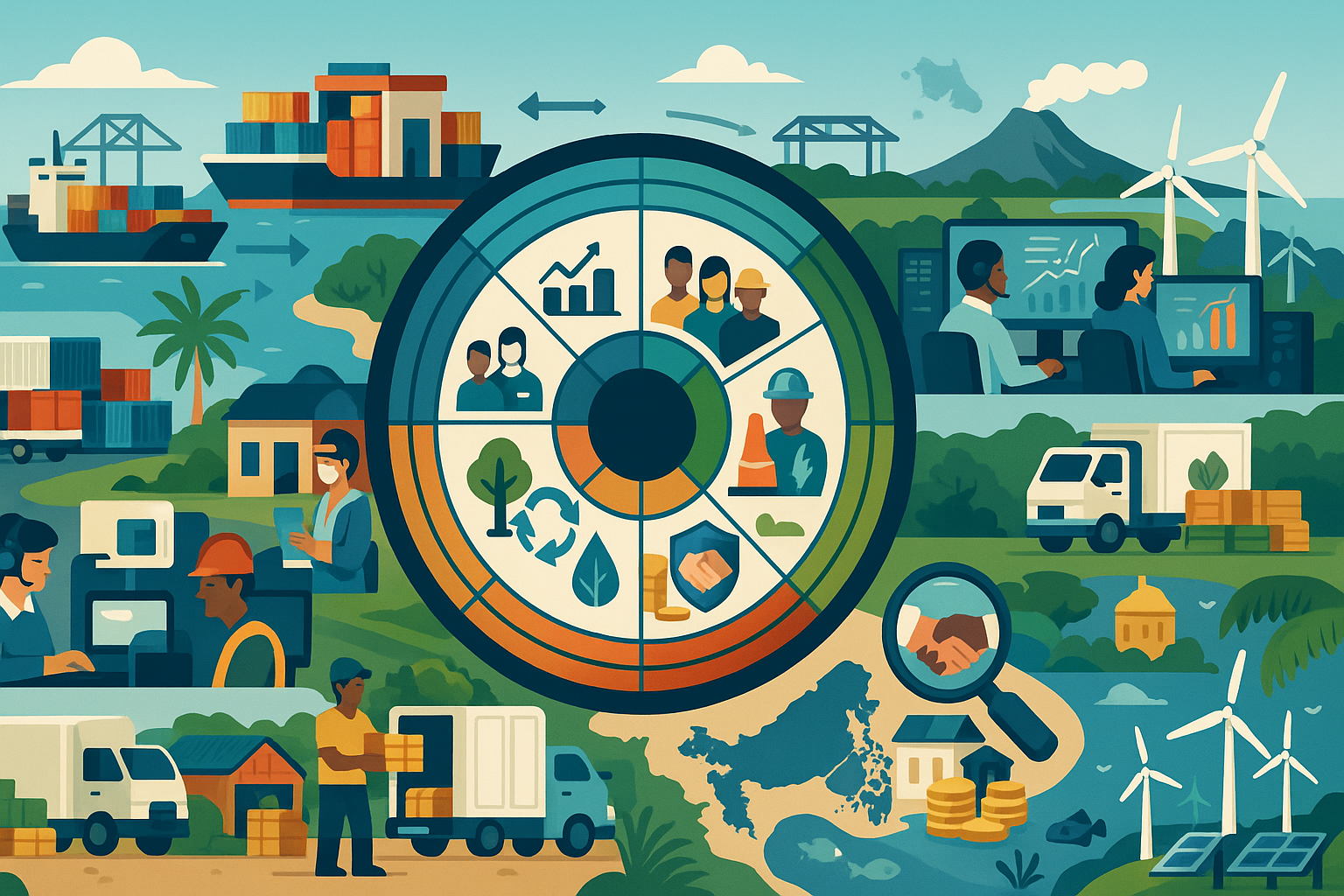Multinational corporations (MNCs) have become integral to the Philippine economy, operating across electronics, business process outsourcing (BPO), retail, energy, and mining. Their most visible economic contribution is job creation. Export-oriented electronics firms and expanding BPO centers in urban hubs like Metro Manila, Cebu, and Davao absorb hundreds of thousands of workers, offering stable wages and benefits relative to many domestic employers. These firms also stimulate ancillary demand—security, catering, logistics—creating indirect employment that multiplies their footprint beyond core operations.
Capital inflows tied to MNCs bring foreign exchange, bolster the balance of payments, and frequently anchor special economic zones administered by entities such as PEZA. These zones provide tax incentives and infrastructure that compress setup times and operating costs, lowering barriers for global manufacturers. The presence of MNCs compels domestic suppliers to upgrade quality, standardization, and delivery reliability, gradually strengthening local supply chains.
Yet the gains are uneven. While BPO roles pay wage premia and open paths for young graduates, many positions remain entry-level and routine, with limited progression without continuous upskilling. Electronics assembly plants often occupy low- to mid-value segments of the value chain, capturing thin margins and leaving higher-value design and R&D offshore. This configuration exposes the country to global demand swings: a downturn in consumer electronics can quickly ripple through employment and export receipts.
Social impacts reflect these economic contours. On the positive side, MNCs tend to formalize work arrangements, offer health insurance, and adopt global safety standards. Many run corporate social responsibility programs—scholarships, community clinics, coastal cleanups—that respond to local needs. In BPOs, the sector is notable for relatively high female participation and merit-based promotion frameworks, which can support women’s career mobility.
However, there are trade-offs. Night-shift work, central to global service delivery, can carry health costs and strain family life. Large-scale retail and fast-food multinationals may outcompete smaller local businesses, reshaping neighborhood economies. In resource sectors, community tensions can emerge around land rights and environmental safeguards. Mining operations, for instance, must navigate biodiversity, watershed integrity, and indigenous peoples’ consent—areas where missteps can leave lasting scars.
Policy architecture shapes whether benefits outweigh risks. Incentive regimes should evolve toward performance-based models that reward technology transfer, local supplier development, and workforce training, rather than simply subsidizing presence. Public–private partnerships can align curricula with industry needs, ensuring graduates possess both technical and soft skills. Strengthening labor inspection capacity helps translate MNC codes of conduct into everyday practice, particularly among subcontractors.
A forward-looking agenda would push for climbing the value chain: co-locating design, prototyping, and analytics alongside assembly and shared services; encouraging joint R&D with universities; and using public procurement to incubate domestic capabilities. On sustainability, regulators can require credible transition plans, independent environmental monitoring, and remediation funds commensurate with risk. For digital services, data privacy, cybersecurity, and ergonomic standards should be consistently enforced.
In sum, MNCs are neither panacea nor peril. They are platforms: when institutions set clear rules, invest in people, and demand deeper linkages, these platforms can lift productivity and livelihoods. When oversight lags, externalities mount. The Philippines’ task is to tilt the balance—locking in investment while converting presence into progress.















